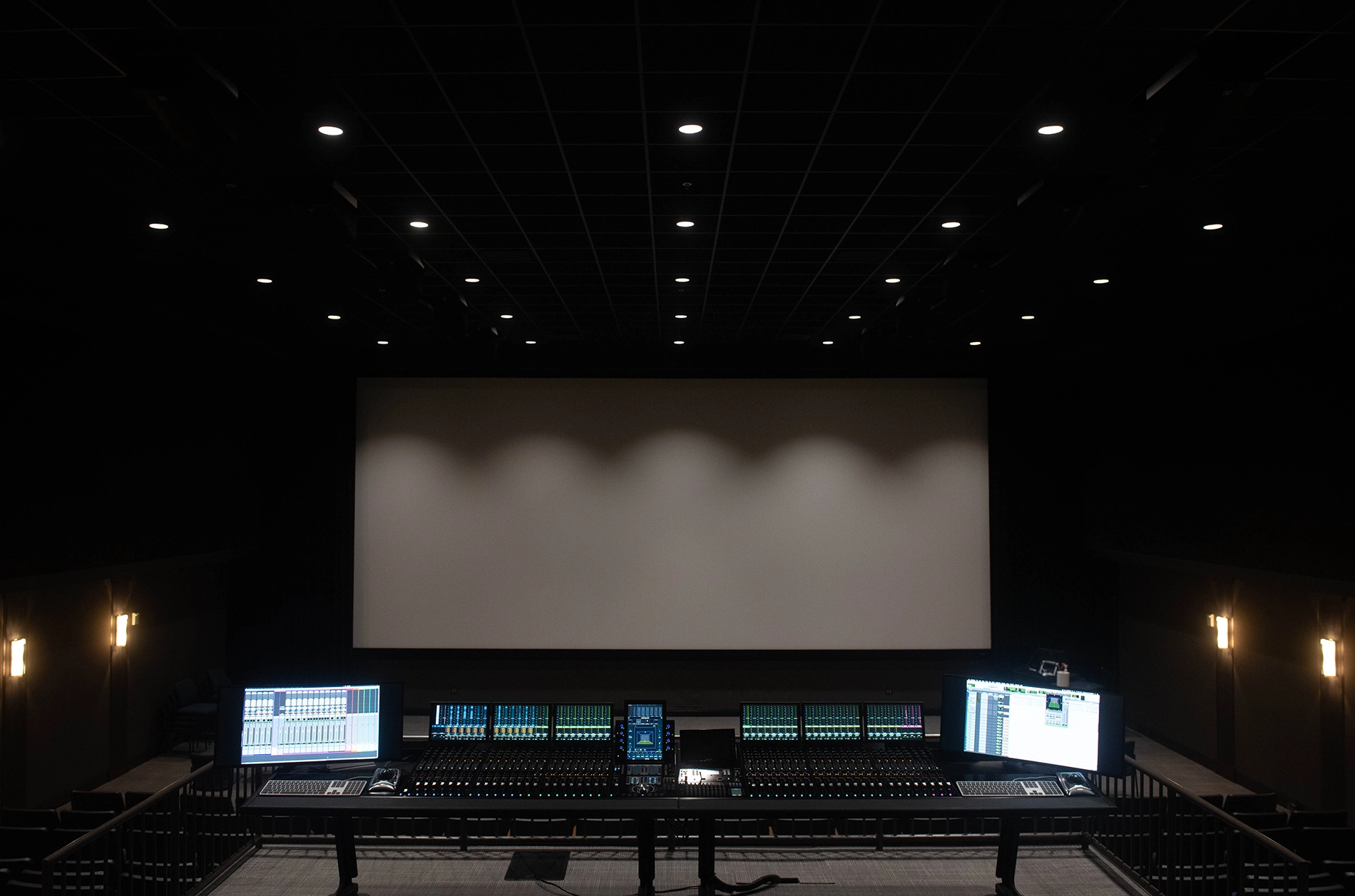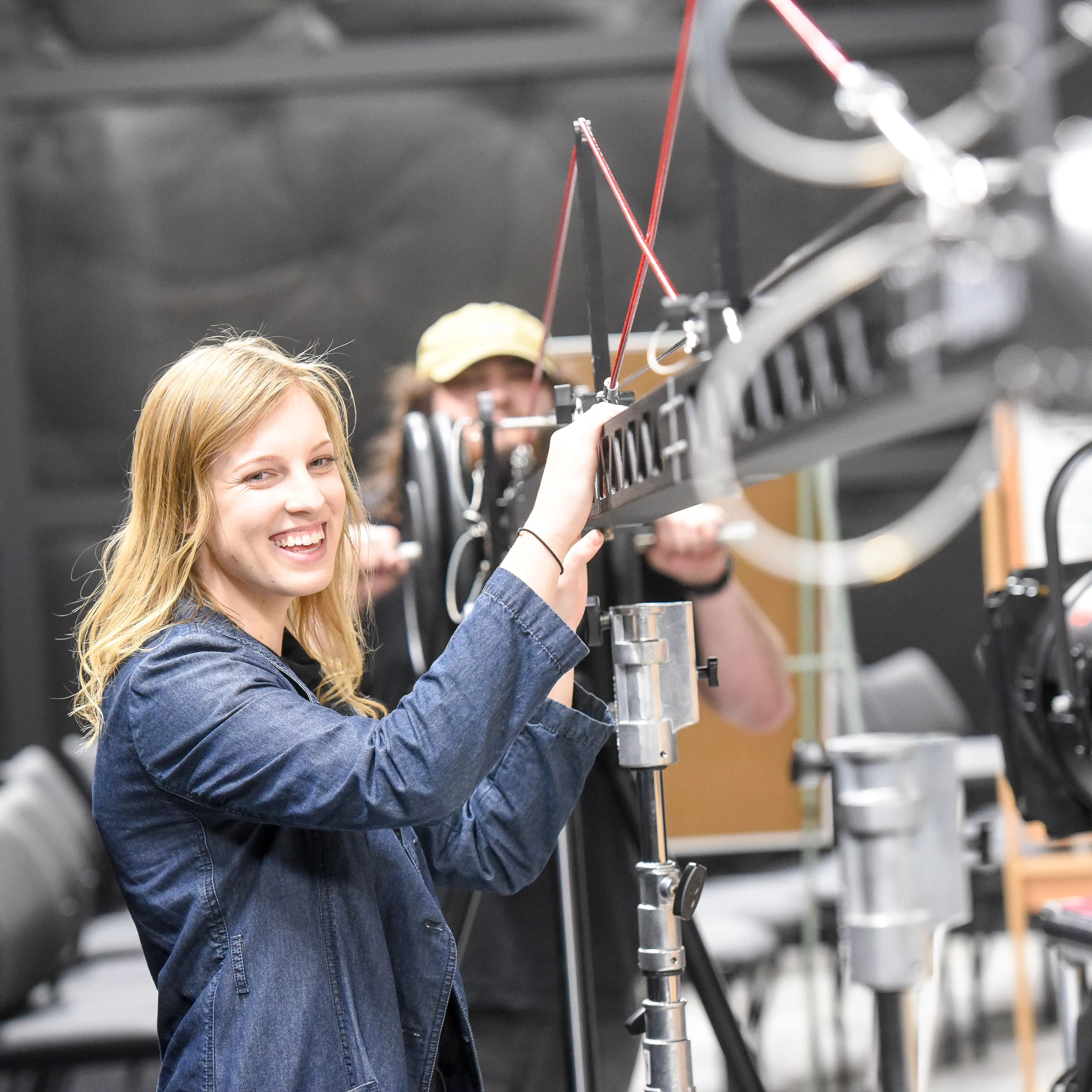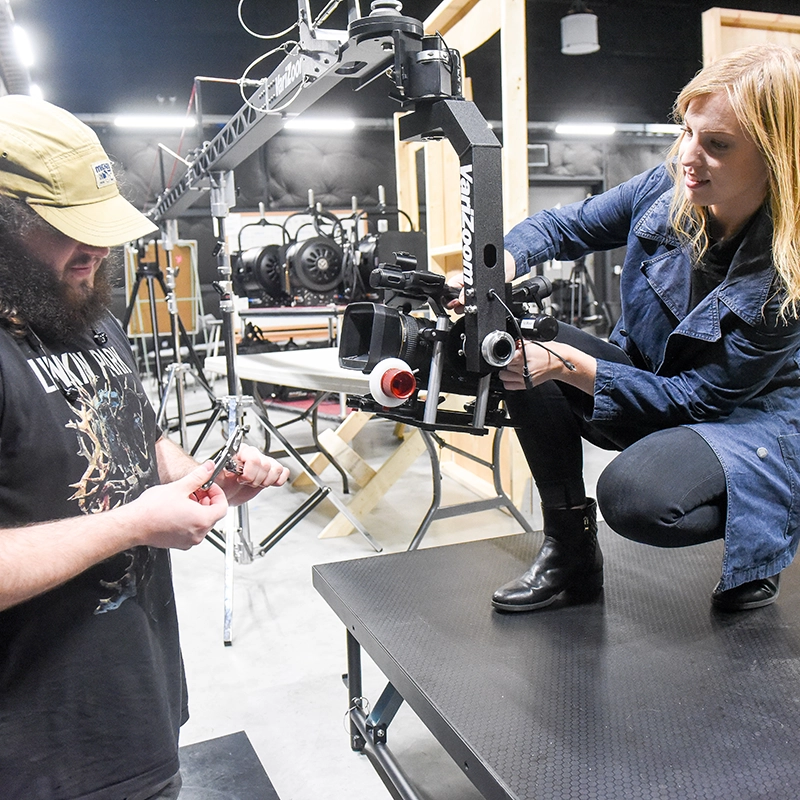Why Major in Cinema and Television Studies at Belmont?
 Every industry relies on video content, and media literacy is paramount for understanding our modern world. From the stalwarts of academia, museums and film festivals to the burgeoning needs in major medical, fortune 500s, government and non-profit organizations, both in personal and corporate brands, everyone employs media. Learn to responsibly research, analyze and shape content across all fields of industry by using a critical lens to create policies, develop a personal vision and to reinvent society.
Every industry relies on video content, and media literacy is paramount for understanding our modern world. From the stalwarts of academia, museums and film festivals to the burgeoning needs in major medical, fortune 500s, government and non-profit organizations, both in personal and corporate brands, everyone employs media. Learn to responsibly research, analyze and shape content across all fields of industry by using a critical lens to create policies, develop a personal vision and to reinvent society.
- According to the Tennessee Entertainment Commission, Tennessee has risen to fifth in the nation for employment in film and video production.
- Belmont's expert faculty continue to research and publish in their fields of expertise and come from career-long industry experience.
- CTS is housed within Belmont's Film, TV and Media Production Department (FTMP) – noted by Variety Magazine as one of North America's top film schools.
Request Information
Why Nashville?
Nashville is more than just Music City. It’s a growing hub for film, television and digital media. According to the Tennessee Entertainment Commission, Tennessee ranks fifth nationally in film and video production employment — and Nashville is at the heart of that growth.
Our location provides students access to:
- Internships with local television production companies
- Film festivals, art house cinemas and museums with robust media programs
- Opportunities in nonprofit storytelling, political media analysis and branded content
Whether you're interested in traditional film studies degrees or emerging media platforms, Nashville offers access to real-world experience and career-building connections.
What You'll Learn
 In Belmont's cinema and television studies major, you'll focus on these vocational skills:
In Belmont's cinema and television studies major, you'll focus on these vocational skills:
- Development of a personal vision that will shape your approach to the field
- Critical analysis of visual narratives and their cultural impact
- In-depth knowledge of film and television history, from classic to contemporary
- Proficiency in research methodologies and analytical writing
- Understanding of film theory and its application to modern media
- Exploration of diverse cinemas and their global influence
You’ll graduate with the media literacy and intellectual tools needed to contribute meaningfully to academic, creative or corporate environments.
Program Details
Curriculum
The cinema and television studies major leads to a Bachelor of Arts (B.A.) or Bachelor of Science (B.S.) degree and requires a total of 128 credit hours of coursework:
BELL Core requirements: 53 hours (minimum)
Major Core: 36 hours
Electives Core: 9 hours Minor Requirements:
18 hours General Electives: 12 hours (minimum)
Courses You'll Take
MOT 1110. Film History - Lumiere to Now
The course will provide an historical survey of American and international film industries, covering such areas as film styles, genres, national cinemas, major directors and film theory from 1895 through 2015.
MOT 1115. Art of Storytelling
The course is a basic survey course in the fundamentals of effective storytelling. Although the ultimate focus is storytelling in motion pictures, the course examines the principles of storytelling through several perspectives and includes every aspect of storytelling and all elements — sound, music, lighting, editing, performance — used in film.
MOT 1150. Media, Film and Society
This course examines media's profound influence on modern society, from creating celebrities to shaping political views and personal beliefs. Students will develop critical thinking skills to discern truth from falsehood in various media forms. Topics include rhetorical analysis, evidence-based research, memes, celebrity culture, social media and environmental issues. Weekly movie screenings paired with critical readings will equip students to understand and evaluate media's intent and impact.
MOT 1500 History of Television and Digital Media
Through lecture, reading and discussion, students will learn about the evolution of visual
- Contribute to on-campus film screenings and discussions
- Intern with local film festivals or television production companies
- Participate in film criticism workshops with industry professionals
- Engage in research projects under faculty mentorship
- Study abroad programs focused on international cinema
- Collaborate on the curation of themed film series or exhibitions
Outcomes & Alumni Successes
 A degree in cinema and television studies opens the door to diverse careers in media, education, cultural institutions and beyond. Belmont’s program is relatively new, having launched in response to the evolving needs of today’s media landscape. That fresh foundation is significant: it allows the curriculum to be built with intention, grounded in contemporary practices and aligned with industry trends from the start.
A degree in cinema and television studies opens the door to diverse careers in media, education, cultural institutions and beyond. Belmont’s program is relatively new, having launched in response to the evolving needs of today’s media landscape. That fresh foundation is significant: it allows the curriculum to be built with intention, grounded in contemporary practices and aligned with industry trends from the start.
Unlike legacy programs that may take years to adapt, Belmont’s cinema and television studies major is uniquely positioned to offer a forward-thinking approach — blending timeless critical theory with hands-on, real-world relevance. Courses emphasize cultural awareness, technological fluency and ethical storytelling, all designed to equip graduates to thrive across traditional and emerging media platforms.
Alumni from related programs in the film, TV and media production department already work at major streaming platforms, production companies and arts organizations. The cinema and television studies program builds on that momentum, giving students a critical, humanistic lens with which to approach a visually saturated world.
Belmont students graduate with more than a degree — they leave with a media-savvy, story-driven, analytical toolkit that positions them to lead with insight, creativity and integrity in whatever field they choose.
We're committed to your success
Curb College's Professional Development team helps students and graduates grow their skills and networks, preparing them to enter the entertainment industry. To support this, our team offers one-on-one meetings, weekly workshops led by industry experts, off-campus networking events, and hundreds of internships each semester. We serve as ambassadors and connectors for Curb College students and graduates through active involvement in the entertainment world.
It's no wonder that 98% percent of Curb College graduates are employed, pursuing continuing education, or enlisted in the military within 6 months of graduation and 89% of employed graduates are in positions that align with their short or long term career goals.

Brittany Schaffer
Dean of Curb College
"We're thrilled to again be recognized by Variety alongside the most prestigious film schools in North America. As Nashville flourishes as a major entertainment hub, Belmont students benefit from real-world industry connections and hands-on opportunities. This recognition affirms our program's role in connecting creative talent with an increasingly diverse industry that values both artistic vision and business acumen — a combination at the heart of our educational approach."

Career Possibilities
Our graduates are prepared to lead in a range of fields:
-
Film critics and media reviewers offering thoughtful commentary on visual culture
-
Television programming analysts tracking audience behavior and advising network strategy
-
Entertainment journalists reporting on the intersection of pop culture, society and storytelling
-
Streaming platform content analysts using data and insight to guide creative decisions
-
Curators and arts administrators developing programs for museums, film archives and festivals
-
Social media content managers creating and analyzing multimedia for organizations and brands
-
Media researchers and educators bringing visual literacy to the classroom and the broader community
Learn from Industry Veterans
Our faculty bring deep academic knowledge and industry insight. From publishing in leading journals to experience in television development, Belmont CTS professors serve as both scholars and mentors.

Amy Bertram
Email: amy.bertram@belmont.edu
Office Location: Johnson Center 468

Nancy Roche
Email: nancy.roche@belmont.edu
Office Location: Johnson Center 461
Contact Us
Mike Curb College of Entertainment & Music Business
Emily Reynolds
Admissions Coordinator
615.460.6453
Email Emily

